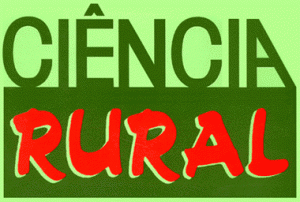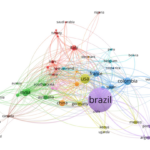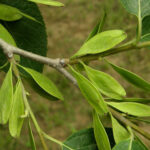By Christian Bredemeier, Associate professor, Faculdade de Agronomia, Universidade Federal do Rio Grande do Sul, Porto Alegre, RS, Brazil
The study entitled “Nitrogen management in wheat based on the normalized difference vegetation index (NDVI), recently published on Ciência Rural (Vol. 48, No. 9), aimed to develop and validate models for the estimation of biomass and nitrogen accumulated in shoots and the N topdressing dose of maximum technical efficiency in wheat, using the normalized difference vegetation index (NDVI) measured by an active canopy optical Sensor. They conducted field experiments in two years. The treatments included N doses applied at plant emergence and at the stage of six fully developed leaves. The researchers evaluated the NDVI, the biomass and the quantity of N accumulated in shoots in the growth stage of six fully expanded leaves and grain yield, being determined the N topdressing dose of maximum technical efficiency (DMET). Models for the relationship between these variables were also proposed by the researchers and validated in field experiments.
The normalized difference vegetation index (NDVI) showed positive correlation with the biomass and the quantity of N accumulated in shoots in spring wheat. The dose of maximum technical efficiency of nitrogen correlated negatively with the value of NDVI measured at the time of nitrogen topdressing.
For the researcher Christian Bredemeier, the study innovates by proposing models for the nitrogen fertilization in variable rate in wheat using information obtained by an active canopy sensor, in this case, the normalized difference vegetation index (NDVI). Other research groups worldwide are also proposing models for the use of vegetation sensors for site-specific nitrogen fertilization in different crops (BASSO, et al., 2011; BRAGAGNOLO; AMADO; BORTOLOTTO, 2016; GROHS, et al., 2009). However, these are the first models developed in southern Brazil.
References
BASSO, B., et al. A strategic and tactical management approach to select optimal N fertilizer rates for wheat in a spatially variable field. European Journal of Agronomy [online]. 2011, vol. 35, no. 4, pp. 215-222, ISSN: 1161-0301 [viewed 12 November 2018]. DOI: 10.1016/j.eja.2011.06.004. Available from: https://www.researchgate.net/journal/1161-0301_European_Journal_of_Agronomy
BRAGAGNOLO, J., AMADO, T.J.C. and BORTOLOTTO, R.P. Use efficiency of variable rate of nitrogen prescribed by optical sensor in corn. Rev. Ceres [online]. 2016, vol. 63, no. 1 pp. 103-111, ISSN: 0034-737X [viewed 12 November 2018]. DOI: 10.1590/0034-737X201663010014. Available from: http://ref.scielo.org/xmz39y
GROHS, D.S., et al. Model for yield potential estimation in wheat and barley using the GreenSeeker sensor. Eng. Agríc. [online]. 2009, vol. 29, no. 1, pp. 101-112, ISSN: 0100-6916 [viewed 12 November 2018]. DOI: 10.1590/S0100-69162009000100011. Available from: http://ref.scielo.org/8vx8qz
To read the article, access it
VIAN, A.L., et al. Nitrogen management in wheat based on the normalized difference vegetation index (NDVI). Cienc. Rural [online]. 2018, vol. 48, no. 9, e20170743, ISSN: 0103-8478 [viewed 12 November 2018]. DOI: 10.1590/0103-8478cr20170743. Available from: http://ref.scielo.org/pj7c86
External link
Ciência Rural – CR: <http://www.scielo.br/cr>
Como citar este post [ISO 690/2010]:


















Recent Comments